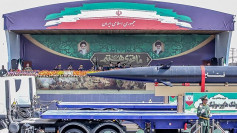Microsoft, Nike, Starbucks, Unilever, and Danone are working together in a new consortium dedicated to exchanging resources and strategies to cut carbon emissions, putting together the energies of some of the world's largest businesses that have committed to combating climate change.
Called Transform to Net Zero, the cause-oriented group also includes auto giant Mercedes-Benz, Danish shipping company A.P. Moller-Maersk, Indian tech group Wipro Ltd, and Natura & Co., the Brazilian cosmetics company that owns Avon.
The organization plans to hire new members and to collaborate with the Environmental Defense Fund to provide direction, analysis, and blueprints for businesses whose objective is to attain zero carbon pollution by 2050.
The announcement did not provide specific details of the investment that the companies would put up, detailing only preliminary research and other studies that will be done over the next five years.
The creation of this community comes at a time when there has been a large rise in concern about climate change and global warming in recent years. As such, several influential tech companies and multinationals have vowed to reduce their carbon emissions.
Microsoft revealed back in January that it would go carbon-negative by 2050, meaning it will gradually eliminate the carbon emissions from the atmosphere, and then some. The software giant raised $1 billion to a climate-innovation program to invest in ways to slash and remove carbon emissions, one of the most aggressive corporate undertakings.
Amazon has also agreed to future carbon neutrality. Both technology empires have come under criticism from climate organizations for continuing to provide Cloud-computing services to big oil and gas companies.
A report by Greenpeace in May denounced Amazon, Microsoft and Google for continuing to do business with companies that specialize in creating energy with non-renewable sources despite feigning support for renewable energy. Google responded to the report by claiming it would not be developing custom artificial intelligence tools for oil and gas producing groups.
Some of the goals for net-zero carbon emissions include cuts across the entire value chain, including the effects of products and services, and the significant pledge and determination to invest in and accelerate innovation.
While many groups have made commitments to enhance, detractors said that steps taken by corporate giants still fall way short of the type of wide-reaching transformation required to meet the goals of the United Nations on emissions and capping the global increase at 1.5 degrees celsius.





